Christianity & Politics
Examine the relationship of religion to politics through the work of canonical authors who wrestle with Biblical religion.
Weekly | Mondays, May-June 2024
Online Seminar
Taking on the pseudonym Johannes de Silentio and taking up the theme of the binding of Isaac, Søren Kierkegaard intensely examines what it might mean to “serve the Lord with fear, and rejoice with trembling” (Psalm 2:11). After four retellings of Abraham’s journey up Mount Moriah to sacrifice his son, the work turns to a rigorous examination of three theologico-philiosophical problemata.
This riveting “dialectical lyric” is an inquiry into the ultimacy of faith, the limits of rationality, and their implications for understanding the good life. Fear and Trembling prompts the reader to confront what is at stake in the leap from finitude to transcendence in light of some of the biggest challenges of modern culture and politics.
Image: Abraham’s Sacrifice, 1655
Matthew Dinan on Søren Kierkegaard’s Fear & Trembling
This course takes place weekly on Mondays, via Zoom, from 6 PM to 8 PM ET. It is open only to alumni of the Hertog Foundation's programs. All course materials will be provided.
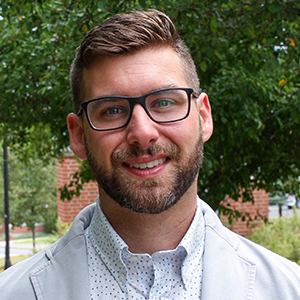
Matthew Dinan is an Associate Professor in the Great Books Program at St. Thomas University in Fredericton, New Brunswick, Canada. He does research on Ancient Greek, Christian, and 19th and 20th Century Political Philosophy.

Matthew Dinan is an Associate Professor in the Great Books Program at St. Thomas University in Fredericton, New Brunswick, Canada. He does research on Ancient Greek, Christian, and 19th and 20th Century Political Philosophy. He is especially interested in Plato, Aristotle, Kierkegaard, Nietzsche, and Derrida. He is the co-editor of Politics, Literature, and Film in Conversation: Essays in Honor of Mary P. Nichols. His current book project, Kierkegaard’s Socratic Political Philosophy, argues that Søren Kierkegaard’s contribution to political philosophy should be understood as “doubly” Socratic. In addition to his scholarly work, Dinan is a regular contributor to The Hedgehog Review and has written for The Bulwark, Commonweal, and Athwart.
Readings:
Topics:
Discussion Questions:
Readings:
Topics:
Discussion Questions:
Readings:
Topics:
Discussion Questions:
Readings:
Topics:
Discussion Questions:
Readings:
Topics:
Discussion Questions:
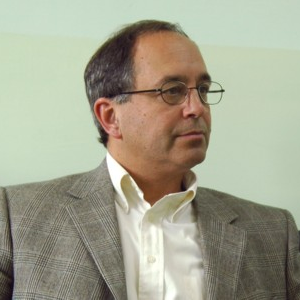
Joshua Mitchell
Joshua Mitchell is professor of political theory at Georgetown University. His research interest lies in the relationship between political thought and theology in the West.
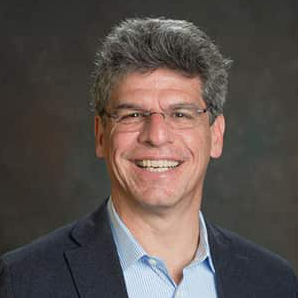
Jacob Howland
Jacob Howland has published five books and roughly 60 scholarly articles and review essays on the thought of Plato, Aristotle, Xenophon, Kierkegaard, the Talmud, the Holocaust, ideological tyranny, and other subjects. His most recent book is Glaucon’s Fate: History, Myth, and Character in Plato’s Republic.
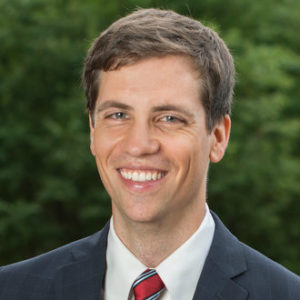
Antón Barba-Kay
Antón Barba-Kay is Associate Professor of Philosophy at The Catholic University of America, in Washington, D.C. (He is also, at the moment, Visiting Professor of Humanities at Deep Springs College, in California.) He earned his Ph.D. from the University of Chicago’s Committee on Social Thought, with a dissertation on Hegel’s Phenomenology of Spirit. The bulk of his research has concentrated on the subjects of recognition and aesthetics in nineteenth-century German philosophy. He is also writing a book about the political and philosophical implications of the digital revolution.

Mary Elizabeth Halper
Mary Elizabeth Halper is Dean of the Humanities at Hertog program and a tutor at St. John’s College, Annapolis. Previously, she was Associate Director of the Hertog Foundation. She graduated with B.A.s in Philosophy and Classics from the University of Dallas and has since been devoted to liberal education in various forms.
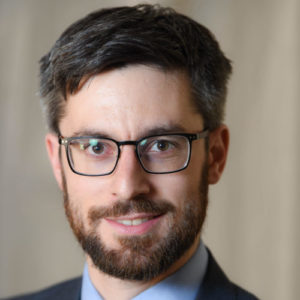
Daniel Burns
Daniel Burns is Associate Professor of Politics at the University of Dallas. His research in political philosophy focuses on the relation between religion and citizenship. He has recently served as a staffer for the U.S. Congress Joint Economic Committee and as a full-time contractor for the U.S. Department of Health and Human Services.
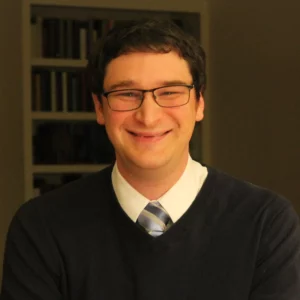
Patrick T. Brown
Patrick T. Brown is a fellow at the Ethics and Public Policy Center, where his work focuses on developing a robust pro-family economic agenda and supporting families as the cornerstone of a healthy and flourishing society. Prior to joining EPPC, Patrick served as a Senior Policy Advisor to Congress’ Joint Economic Committee (JEC).